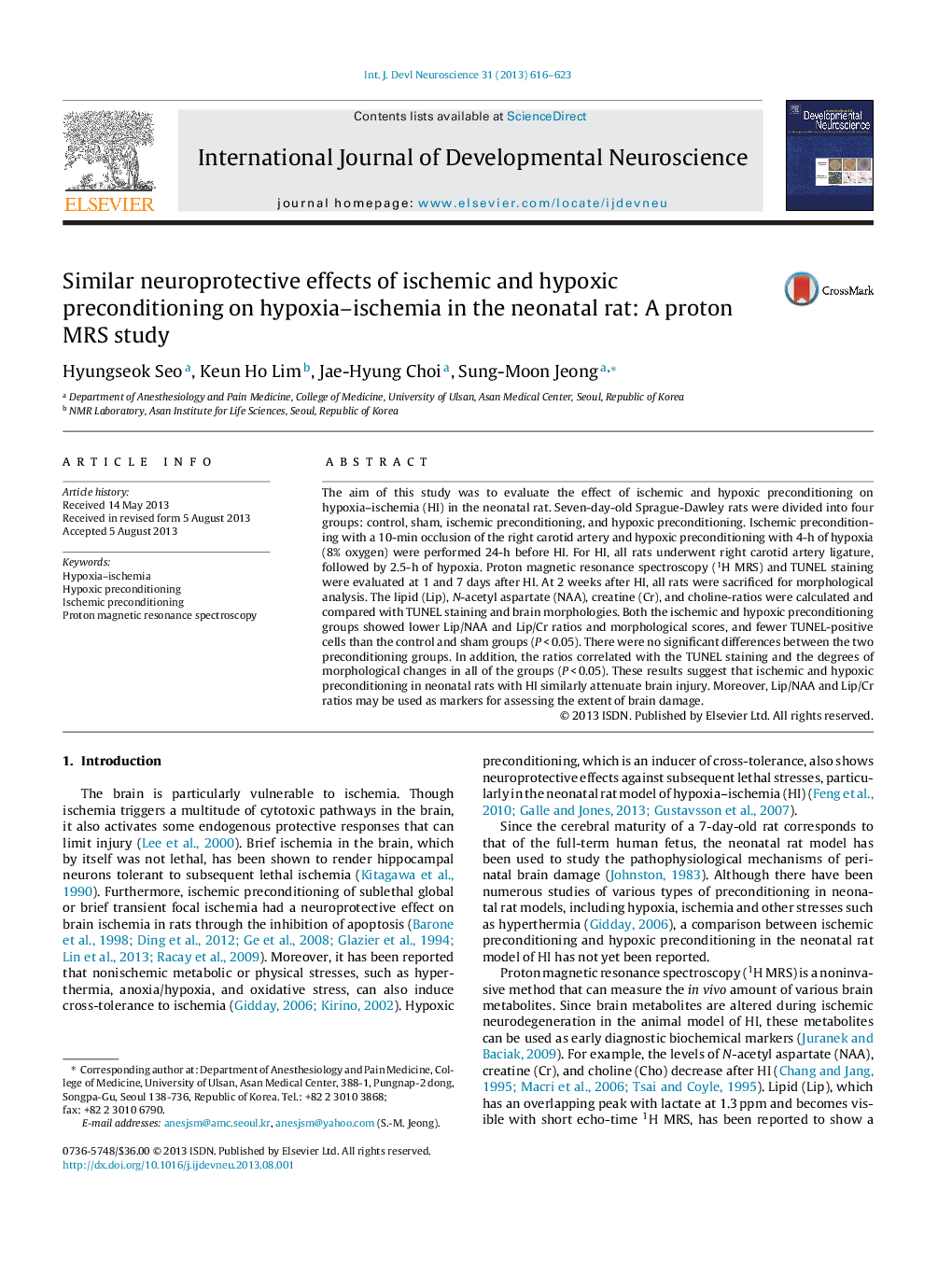| Article ID | Journal | Published Year | Pages | File Type |
|---|---|---|---|---|
| 5893932 | International Journal of Developmental Neuroscience | 2013 | 8 Pages |
â¢The effects of ischemic and hypoxic preconditioning on hypoxia-ischemia (HI) were compared.â¢Proton MRS was used to evaluate biochemical changes after HI.â¢Both ischemic and hypoxic preconditioning similarly attenuate brain injury after HI.â¢Proton MRS lipid/N-acetyl aspartate and lipid/creatine ratios may be used as markers for assessing the extent of brain damage.
The aim of this study was to evaluate the effect of ischemic and hypoxic preconditioning on hypoxia-ischemia (HI) in the neonatal rat. Seven-day-old Sprague-Dawley rats were divided into four groups: control, sham, ischemic preconditioning, and hypoxic preconditioning. Ischemic preconditioning with a 10-min occlusion of the right carotid artery and hypoxic preconditioning with 4-h of hypoxia (8% oxygen) were performed 24-h before HI. For HI, all rats underwent right carotid artery ligature, followed by 2.5-h of hypoxia. Proton magnetic resonance spectroscopy (1H MRS) and TUNEL staining were evaluated at 1 and 7 days after HI. At 2 weeks after HI, all rats were sacrificed for morphological analysis. The lipid (Lip), N-acetyl aspartate (NAA), creatine (Cr), and choline-ratios were calculated and compared with TUNEL staining and brain morphologies. Both the ischemic and hypoxic preconditioning groups showed lower Lip/NAA and Lip/Cr ratios and morphological scores, and fewer TUNEL-positive cells than the control and sham groups (PÂ <Â 0.05). There were no significant differences between the two preconditioning groups. In addition, the ratios correlated with the TUNEL staining and the degrees of morphological changes in all of the groups (PÂ <Â 0.05). These results suggest that ischemic and hypoxic preconditioning in neonatal rats with HI similarly attenuate brain injury. Moreover, Lip/NAA and Lip/Cr ratios may be used as markers for assessing the extent of brain damage.
